
Choosing the Best Commercial Vacuum Cleaner
What Makes a Vacuum Cleaner Commercial Grade?
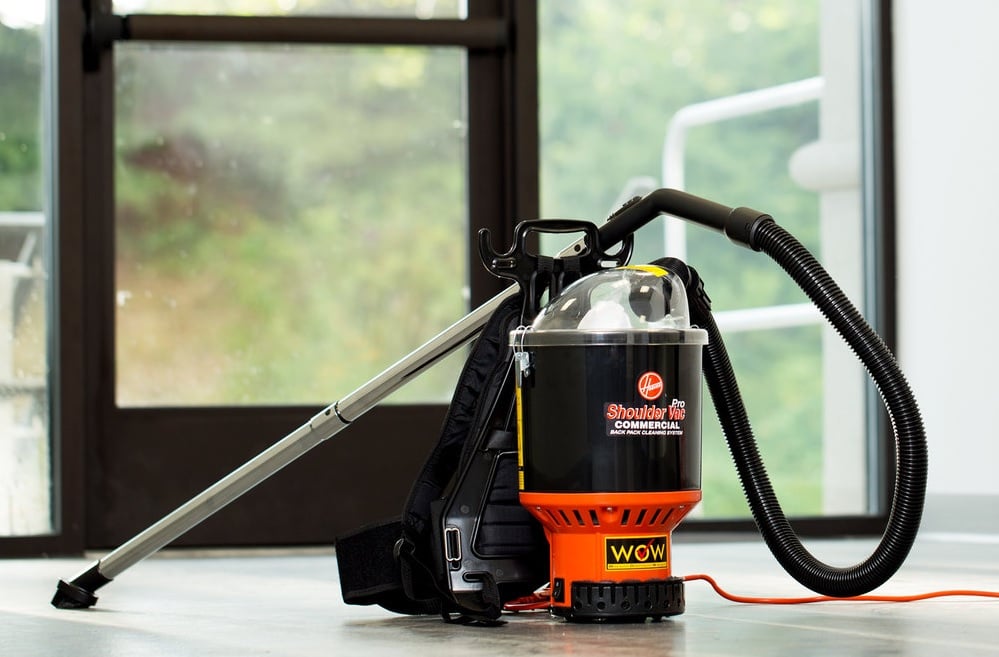
While home vacuum cleaners do the job when used infrequently, a commercial grade vacuum is generally more durable, powerful, and built for continuous use. Where a residential unit would wear out quickly in a professional cleaning application, commercial vacuums are intended for heavy use and last longer.
Plus, most commercial units will come with a commercial power cord which is helpful for keeping your business within safety guidelines.
Shop All Commercial Vacuum CleanersTypes of Vacuum Cleaners
Each vacuum cleaner has its own set of strengths that make it best-suited for specific types of tasks over other vacuum types. Each type is explained in greater detail below.
- Upright Vacuums - general purpose cleaning.
- Canister Vacuums - under furniture, cleaning stairs.
- Backpack Vacuums - long periods of cleaning.
- Handheld Vacuums - stairs, molding, drapes, upholstery, spot-cleaning.
- Wet / Dry Vacuums - construction sites, professional cleaning services, wet spills.
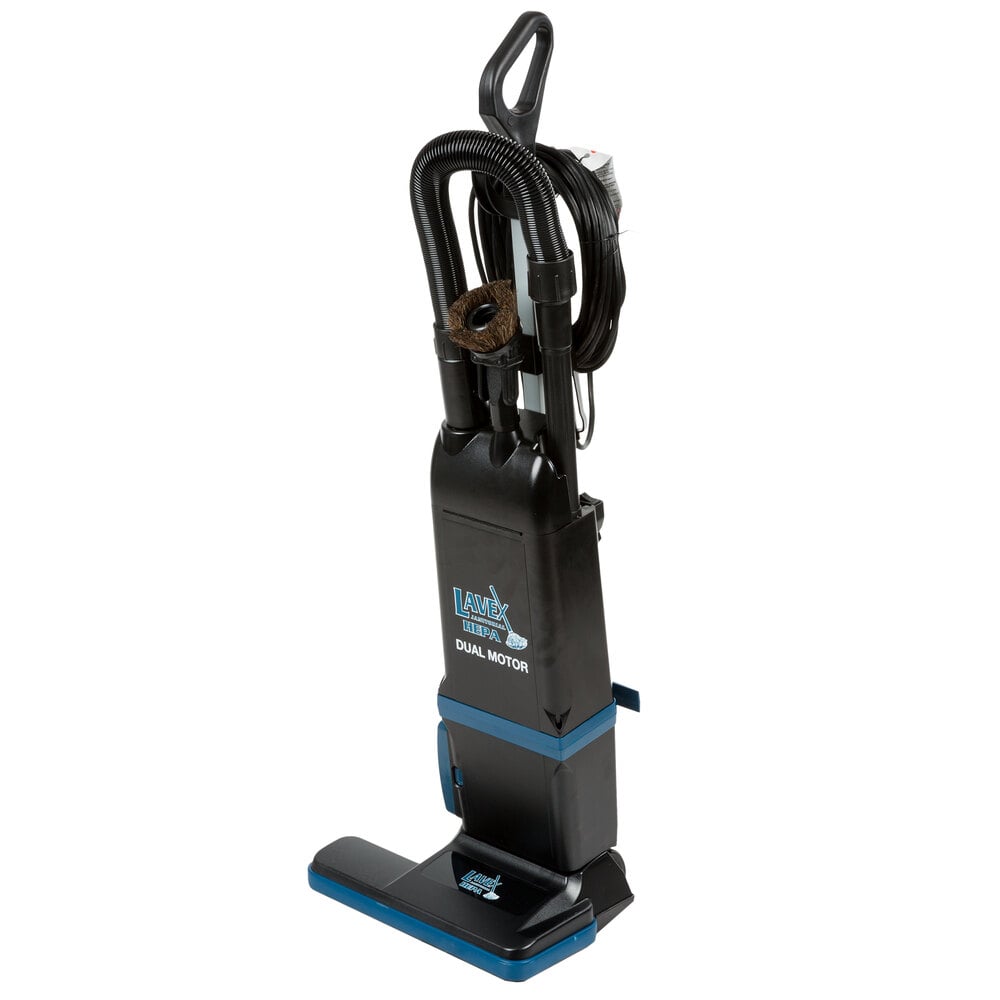
With a powered cleaning head, a bag or canister on the handle, and a long power cord, upright commercial vacuum cleaners are great for general purpose cleaning in hotel rooms, and offices. These and their manual counterparts, floor sweepers, also make a great restaurant vacuum.
The self-contained design is ideal for applications where your cleaning crew will be going from one area to another since they only need to roll the vacuum cleaner to the next room and plug it in. With this style, there is no need to wrangle a separate canister or unwieldy hose. Plus, many upright vacuum cleaners will fit on housekeeping carts so that they can easily be transported with the rest of your hotel cleaning supplies.
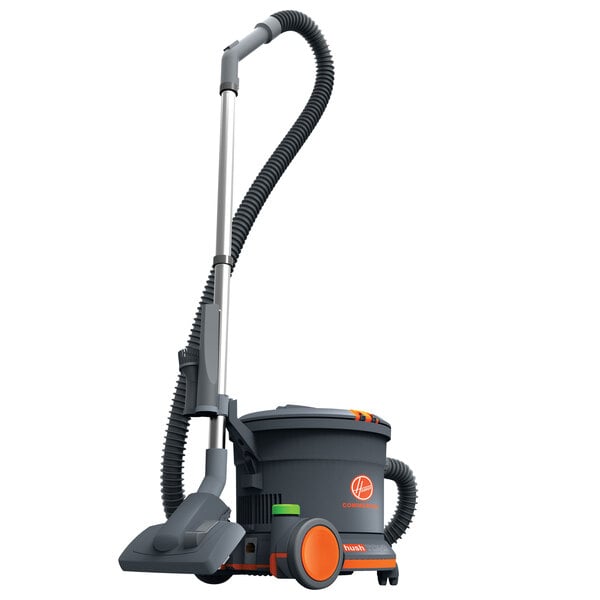
A canister vacuum has a cleaning head which is attached to the dirt bag and motor by a rigid wand and a long, flexible hose. The vacuum head is much lighter and more maneuverable than an upright vacuum cleaner since you don’t need to move the canister with every pass. Also, canister vacuums in general tend to be quieter than other styles.
Since they have smaller and more maneuverable cleaning heads, canister vacuums are perfect for cleaning under furniture and are easier to handle when vacuuming staircases. Though storing the hose and wand along with the canister may take up more space, the convenience of using a canister vacuum may outweigh storage concerns when you need to clean under chairs and tables in a restaurant setting.
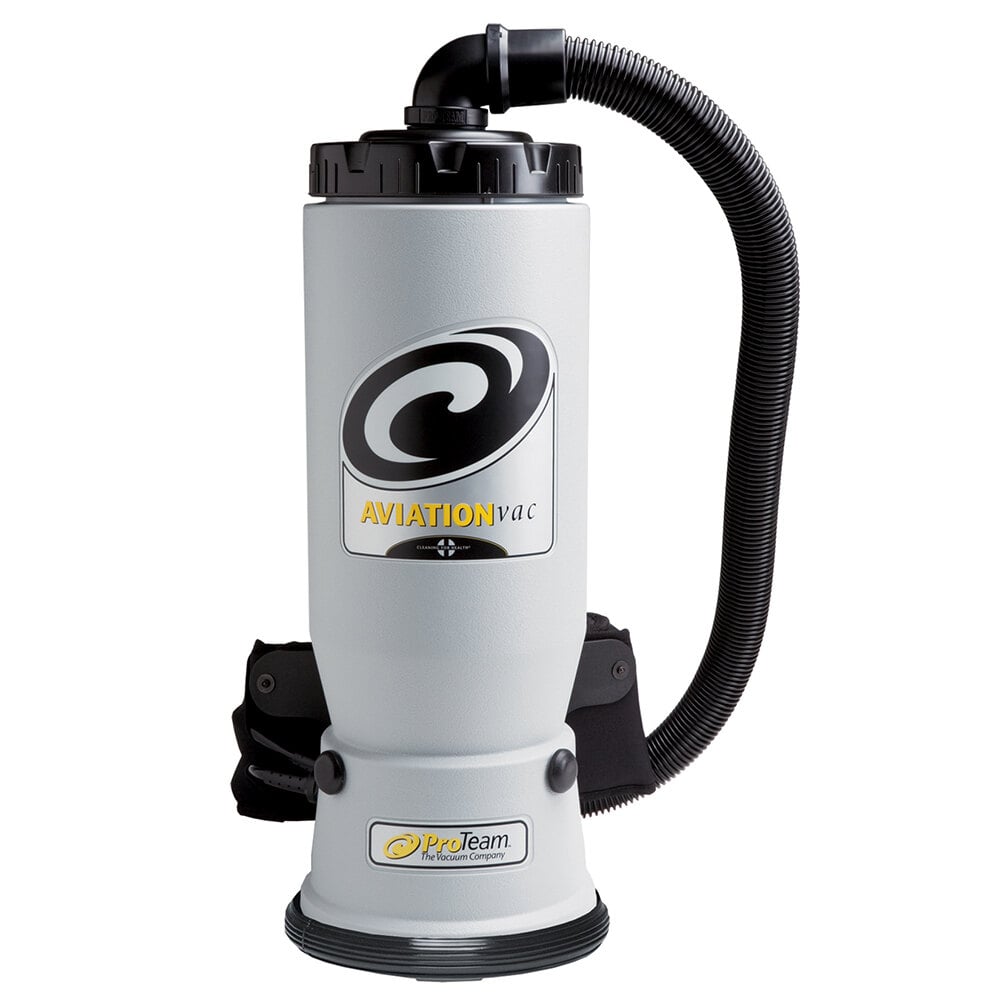
Designed to be lightweight and easy to carry, backpack vacuums make it easy for employees to continuously clean for long periods of time. Most models come with ergonomic pads and back supports for employee safety, plus they are light enough for people of various statures to use. Since employees wear this type of vacuum just like a backpack, it keeps their hands free to manage the wand and power cord or to move furniture out of the way.
Some backpack vacuum cleaners also have a feature that allows users to switch the unit from a vacuum cleaner to a blower as needed. Offering convenience, maneuverability, versatility, and the added benefit of being lightweight, backpack vacuums are great not only for janitorial services but also for industrial cleaning applications.
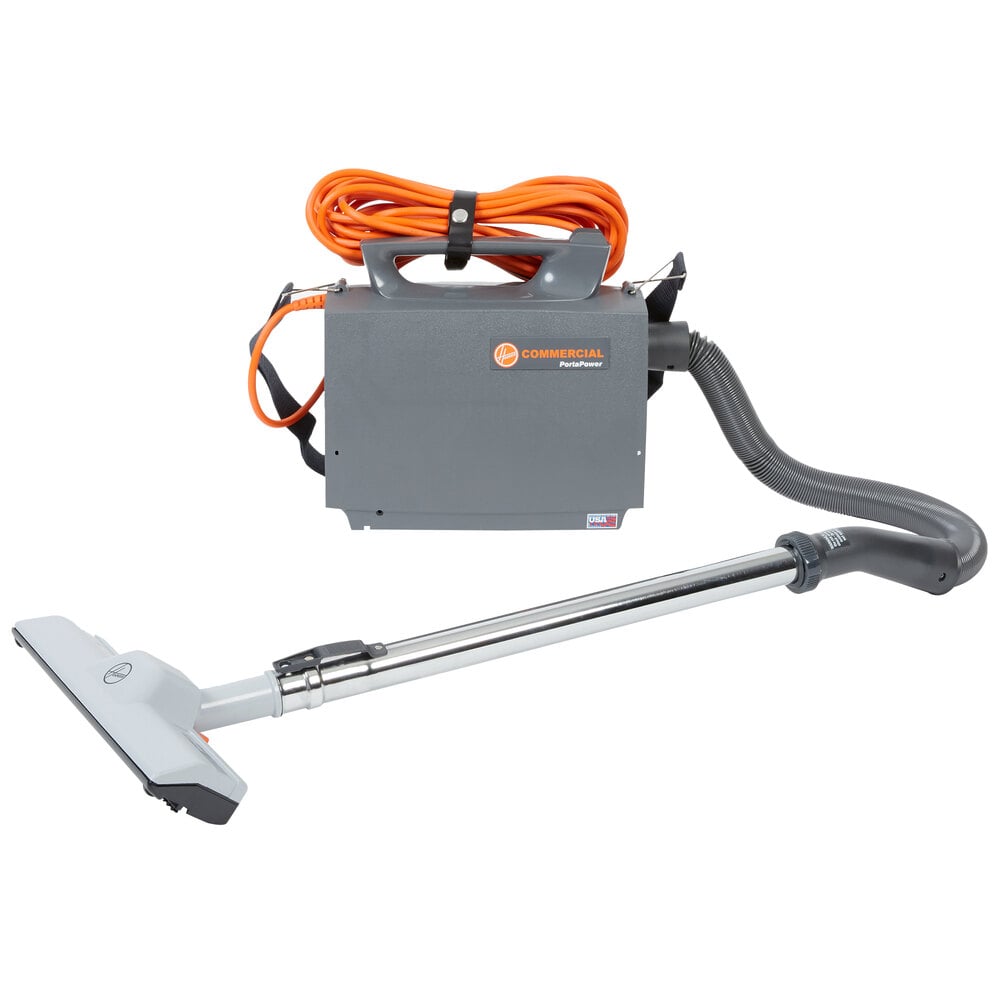
Handheld Vacuum
If you need a small vacuum to clean stairs, molding, drapes, or upholstery in restaurant, hotel, or office settings, a handheld portable vacuum cleaner is a great choice! Small and lightweight, these vacuums are easy to carry from one task to the next.
Though not a good option for cleaning large areas, portable vacuums do also work well for quick cleanups and spot cleaning in between regular vacuuming too - instead of bringing a full-size vacuum out of storage it's easy to store these units in a convenient location and grab them at a moment's notice.
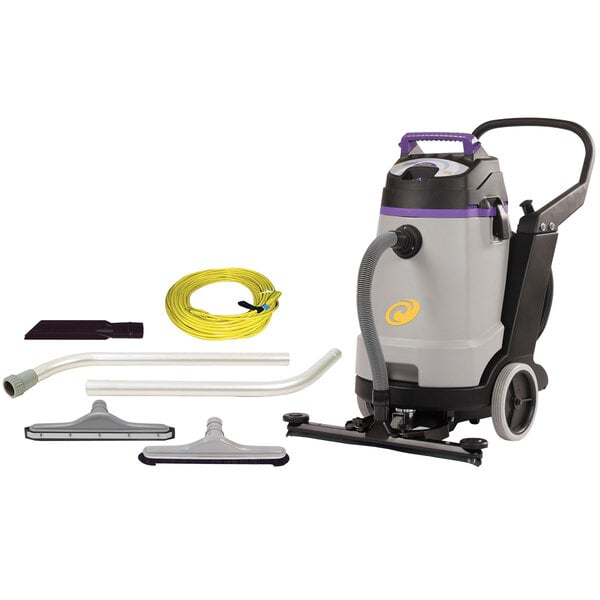
These specialized machines can sweep up any type of mess, from dust and debris at construction sites to liquids from a flood or accidental spill, making them some of the best industrial vacuum cleaners available. A must-have for professional cleaning services, wet / dry vacs are the perfect tools for cleaning up after a renovation or a natural disaster. After a storm or burst water pipe, wet / dry vacuum cleaners can eliminate much of the mop and bucket work to make cleanup go faster.
Many wet / dry vacuums tend to be louder than other varieties, so consider the decibel level of each unit before purchasing and be prepared with ear protection for your employees. Another specialized consideration for wet / dry vacuums is the method of emptying. Look for a unit that comes with a drain valve or drain hose, for easy emptying when you are cleaning up wet messes.
What is HEPA?
An acronym for High Efficiency Particulate Air or High Efficiency Particulate Arrestance, HEPA refers to filters that have been tested and certified to remove a high percentage of microscopic particulates and meet certain other standards.
While HEPA filters are used in a variety of applications, like the automotive industry and HVAC systems, using HEPA filtration in vacuum cleaners helps to trap pollen, dust, germs, and other common triggers of allergy and asthma symptoms so that they aren't kicked up into the air during cleaning.
All vacuum cleaners have some sort of filter but not all are HEPA filters. If you are concerned about dispersing allergens, viruses, or other contaminants into the air you may want to consider purchasing a vacuum cleaner with HEPA filtration.
Bagged vs. Bagless Vacuums
When considering whether your business should go bagless, here are some things to think about. First, while it is true that eliminating disposable vacuum bags can reduce expenses, bagless units do have additional filters that will need to be cleaned and replaced every so often. Second, emptying a bagless vacuum cleaner can be a dusty job so you'll want workers to be aware that this might cause symptoms in those with allergies or asthma. On the other hand, a bagged vacuum cleaner ensures that most of the dust and debris will stay inside the bag for disposal.
|
|
Bagless |
|
|
CRI Certifications
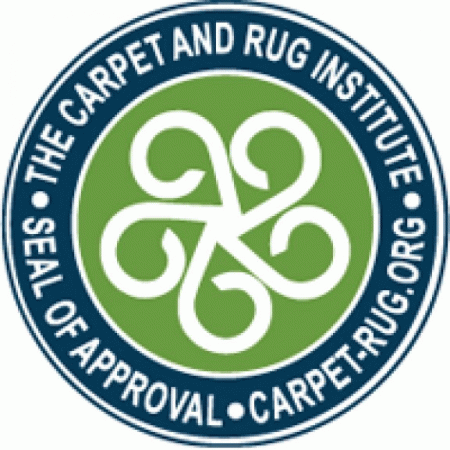
The Carpet and Rug Institute, or CRI, is one of the foremost sources for information about carpet and they lead many initiatives that help to protect air quality and extend carpet's lifespan. The CRI Seal of Approval program tests carpet cleaning equipment and chemicals to evaluate whether they are effective at removing soil without damaging the carpet itself.
Seeing the CRI logo related to a vacuum cleaner means that the unit complies with the Carpet and Rug Institute's performance standards for proper soil removal, dust containment, and carpet texture protection. By using a CRI approved vacuum cleaner in your business, you'll ensure better air quality and longer carpet life.
Vacuum Cleaner Features
Hard Floor Option
If you have hard floors, be sure that your vacuum handles them well or that you buy the right accessories. Upright vacuums are usually a good choice. Canister vacuums may need a special head attachment, for example.Edge Cleaning
Extra brushes along the sides of the power head allow better cleaning on baseboards and walls. This is available on some upright models.Height Adjustment
This accounts for carpets with thicker vs. shorter piles. Some adjust manually, others adjust automatically.Roller Brush Type
This is a part, also called a brushroll, which agitates the carpet to loosen and remove dirt. Motor-powered roller brushes give more agitation for a deeper clean than suction-powered rollers, but they can spread dirt out across hard floors too. You can get around this problem by choosing a model that lets you turn the brushroll on / off or adjust the power levels.Easy On / Off
Having an on/off that's easy to figure out and easy to access is important if your employees will be using the vacuum frequently.Hose Diameter
Most commercial vacuums will list the diameter, which falls somewhere between 1 1/4" and 2". Narrower hoses are easier to use and store, but handle less debris. For light-duty cleaning a narrower hose might be enough, but for heavy-duty projects and renovations, a larger hose is a must.Cord
Will you be working in very large rooms or in old buildings where power outlets are few and far between? If so, consider the length of the power cord when choosing a vacuum cleaner for your business. In many applications, like hotel suites or business offices, the standard 35' or 40' cord may be adequate. If you are going to be cleaning large rooms where outlets are scarce, consider a unit with a longer 50' power cord, or a cordless vacuum, so that you can reach a larger area without needing to find another power source.Bag / Canister Capacity
Compare the capacities of the vacuums you are looking at to see which will hold more dirt before needing to be emptied. Those with smaller capacities will need to be emptied more often, which can run into downtime and extra labor expenses. Plus, if you opt for a bagged model, then a smaller capacity would mean purchasing bags more often.Weight
In general, it's hard to go wrong with a lightweight vacuum cleaner. This is especially important, though, if you're planning to use your vacuum in multi-story buildings, for cleaning stairs, or as an accessory on a housekeeping cart. Not only will the lighter weight reduce strain on your staff but a lighter vacuum is easier to maneuver, lift, and store.Noise Level
If you are going to be cleaning in areas where people are working or relaxing, like office spaces or hotels, you may want an especially quiet vacuum cleaner. If this is a concern, look for units with a noise level around or below 55 dB, which is the same range as most normal conversations, or choose one with power settings that allow for quieter operation when you need it.
Vacuum Cleaner Tools and Attachments
If you only need a vacuum cleaner to perform the most basic tasks, buying a unit without the additional attachments and tools may be a good way for you to come in on budget. But if you need your vacuum cleaner to arrive ready for anything then choosing a unit with the right attachment kit is a convenient option. If you decide later to add the complete attachment kit to your vacuum cleaner, our selection includes a wide variety of tool kits. Plus, you can also find just the tool you want rather than buying a complete set of attachments you may never use.
Some common tools and attachments are:
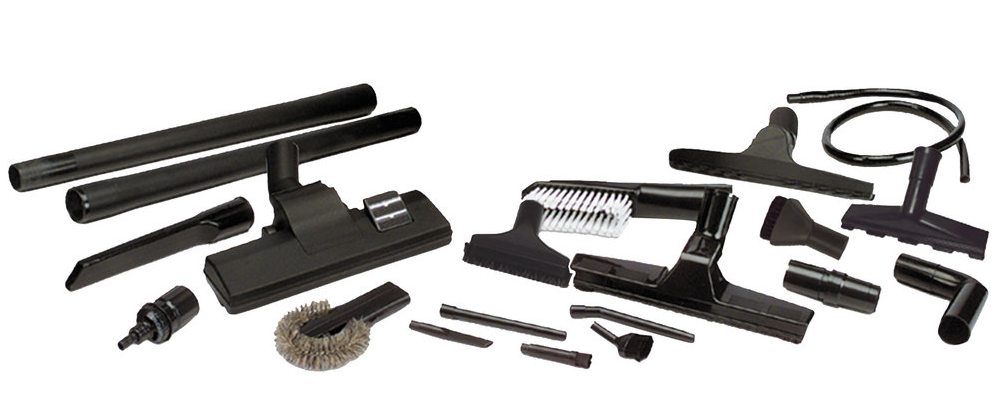
- Dust brushes: intended for high, detailed, or delicate cleaning
- Crevice tools: designed to get into hard-to-reach spots like along baseboards
- Upholstery tools: made to remove dust and allergens from plush furniture
- Additional wands: help you reach higher spots and behind or under furniture
- Specialty floor tools: designed for more effective cleaning of carpets or hard floors, or picking up large debris
When purchasing attachments, it is important to be sure that they will fit your machine. If you have a 1 1/4" vacuum hose, you'll want to make sure the attachments are made to fit a 1 1/4" hose.
Vacuum Cleaner Bags and Replacement Parts
The most replaced components of any vacuum cleaner will be the bags and filters used to trap dust. When bags get full they greatly reduce your vacuum's ability to pick up and contain debris so it's important to make sure that you always have fresh bags and filters on hand to avoid downtime. Our selection of commercial vacuum bags and filters covers many of the available commercial brands.
After bags and filters, belts are the next component that will often need to be replaced. As with belts on any other type of equipment, vacuum cleaner belts develop wear and tear and can break at the most inconvenient times. To make sure that you aren't left with a broken belt in the middle of a job, you can take proactive steps by replacing your vacuum cleaner belts at regular intervals or by keeping an extra one with the machine when it is in use.
Related Resources

Restaurant Cleaning Checklist
Cleaning, sanitizing, and disinfecting are incredibly important in the foodservice industry to prevent cross-contamination and the spread of viruses. But, with so many things to clean in a restaurant, it can be difficult to remember all of the individual cleaning tasks that you need to take care of and how regularly you need to clean your equipment. To lessen the burden, we created this restaurant cleaning checklist that your employees can use to keep track of the cleaning tasks that need to be completed. Pair this commercial kitchen cleaning checklist with our wide selection of restaurant cleaning supplies . Click below for our downloadable restaurant cleaning checklist PDF that your employees can use as they're cleaning. Printable Cleanin

Hiring a Cleaning Service for Your Restaurant
Restaurant cleaning services can be a helpful addition to those who may be short on time or looking to ease the workload of their staff. A clean restaurant creates an inviting atmosphere, safer working conditions, and can help reduce the risk of cross-contamination . Commercial cleaning services that cater to the restaurant industry can be well-equipped to thoroughly sanitize and degrease high-volume kitchens and keep other areas in your restaurant looking good. Below are some helpful hints and tips for hiring the right professional cleaning service to fit your budget and needs. Shop All Janitorial Supplies Use the following links to navigate through the article: Importance of Keeping Your Restaurant Clean Limitations and Benefits of Hiring

Backpack Vacuum Cleaner Reviews
Keep the floor surfaces in your restaurant, warehouse, hotel, or office building clean and free of dust with a backpack vacuum. Backpack vacuums can be used on a variety of floor types, including tile, carpet, and hardwood. Not only are these vacuums efficient, powerful, and comfortable, but they also eliminate the strain caused by bending over to vacuum hard-to-reach places. To help you choose the best option for your business, we've provided backpack vacuum cleaner reviews that have been submitted by customers just like you. This backpack vacuum cleaner comparison not only contrasts each unit's special features, but it helps you make a more educated purchase for your needs. Whether you need a high-capacity model or a unit with a top-rated
- Topics 1344
- Industrial 55
- Troubleshooting Guides 21
- Restaurant Management 128
- Bar Management 55
- Catering Tips 35
- Bakery Management 41
- Food Trucks & Concessions 49
- Advertising & Marketing 37
- Eco-Friendly Tips 11
- Facility Layout & Design 41
- Coffee Shop Tips 27
- Installation & Maintenance 51
- Janitorial & Pest Control 30
- Safety & Sanitation 88
- Startup Tips 104
- Menu Design 10
- Kitchen & Cooking Tips 81
- Hospitality Management 23
- Pizza & Sandwich Shop Tips 36
- Smallwares 37
- Food Prep 88
- Tabletop Items 17
- Disposables 22
- Calculators & Tools 6
- Consumables 52
- Warewashing & Laundry 18
- Cooking Equipment 90
- Food Storage & Refrigeration 51
- Beverage Equipment 34
- Office Supplies 6
- Resource Type
- In-Depth Articles272
- Buying Guides296
- How-Tos93
- Product Reviews77


